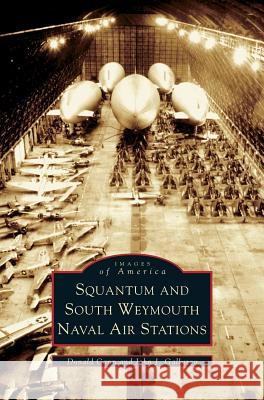Squantum and South Weymouth Naval Air Stations » książka
Squantum and South Weymouth Naval Air Stations
ISBN-13: 9781531621193 / Angielski / Twarda / 2004 / 130 str.
The eyes of the United States Navy first focused on Quincy's Squantum peninsula in 1909, when daring young pilots from around the world gathered for the Harvard Air Meet. By the 1930s, the Victory Plant--a destroyer plant that set production records--had come and gone and the navy had set up the nation's first naval reserve aviation training center on the site. When air traffic over Boston Harbor thickened in the 1930s, the navy moved its aerial operations inland to the South Weymouth Naval Air Station. That base and its ubiquitous hangar became South Shore landmarks for more than a half-century. Squantum and South Weymouth Naval Air Stations brings back to life the early age of naval aviation on the South Shore, from biplanes to blimps to bombers and beyond.
The eyes of the United States Navy first focused on Quincys Squantum peninsula in 1909, when daring young pilots from around the world gathered for the Harvard Air Meet. By the 1930s, the Victory Plant--a destroyer plant that set production records--had come and gone and the navy had set up the nations first naval reserve aviation training center on the site. When air traffic over Boston Harbor thickened in the 1930s, the navy moved its aerial operations inland to the South Weymouth Naval Air Station. That base and its ubiquitous hangar became South Shore landmarks for more than a half-century. Squantum and South Weymouth Naval Air Stations brings back to life the early age of naval aviation on the South Shore, from biplanes to blimps to bombers and beyond.











